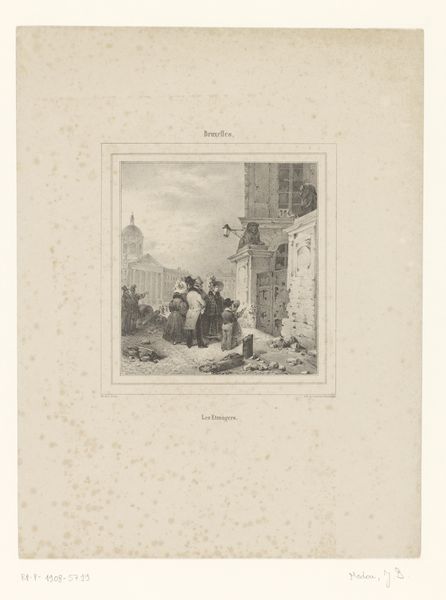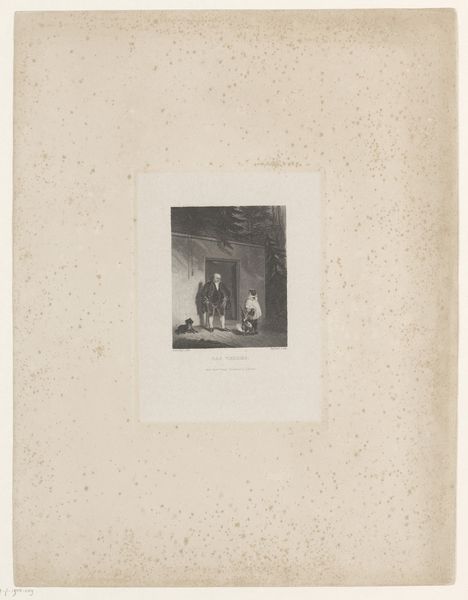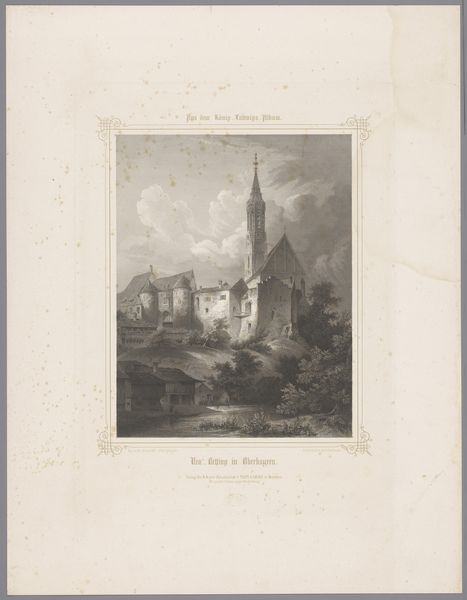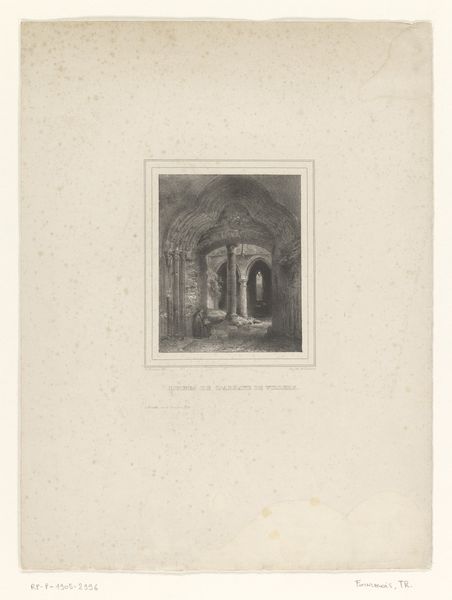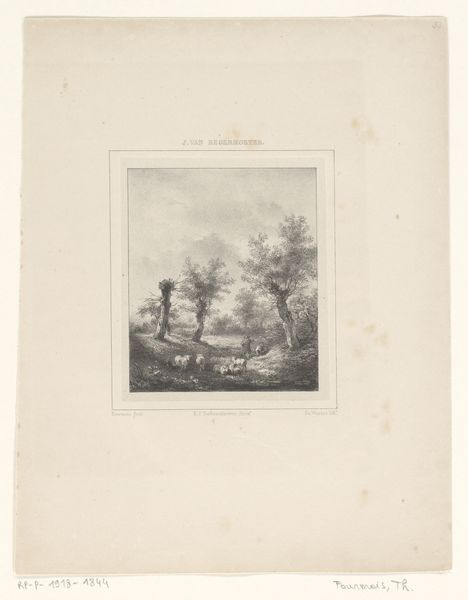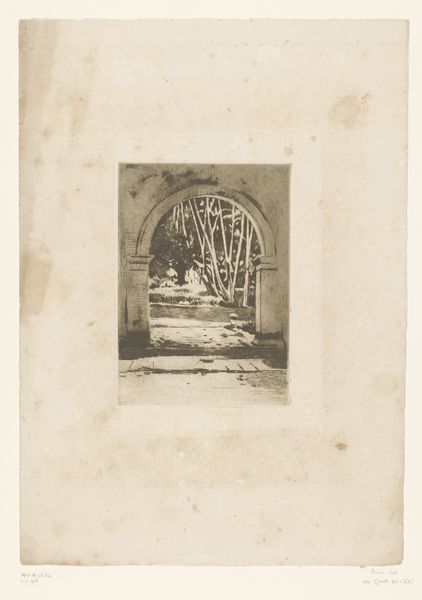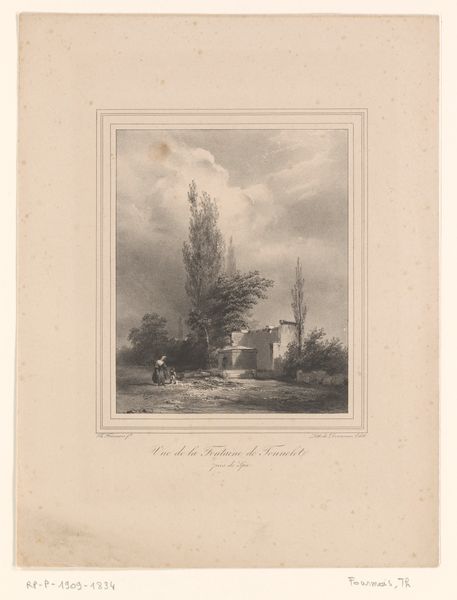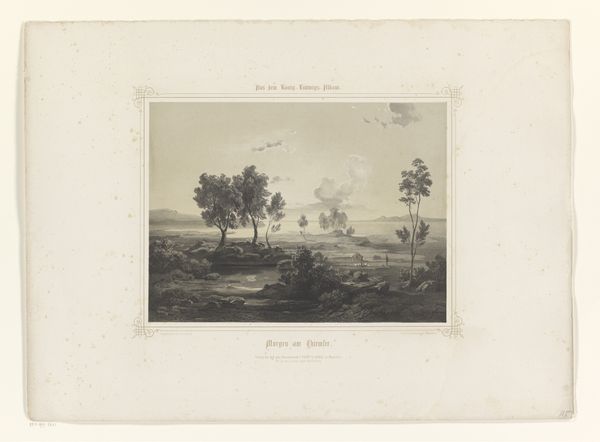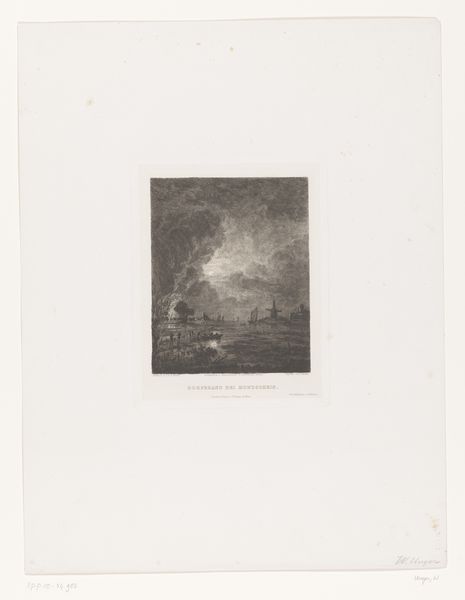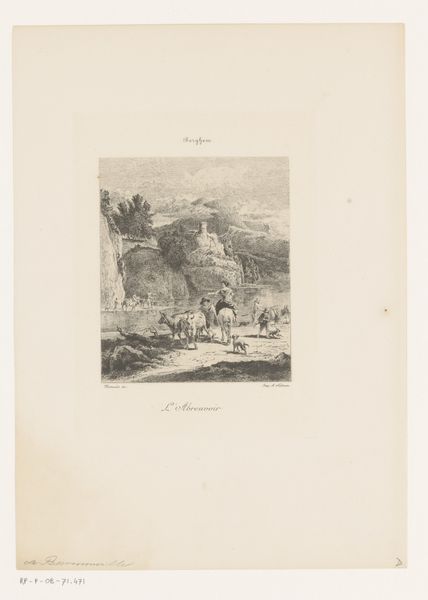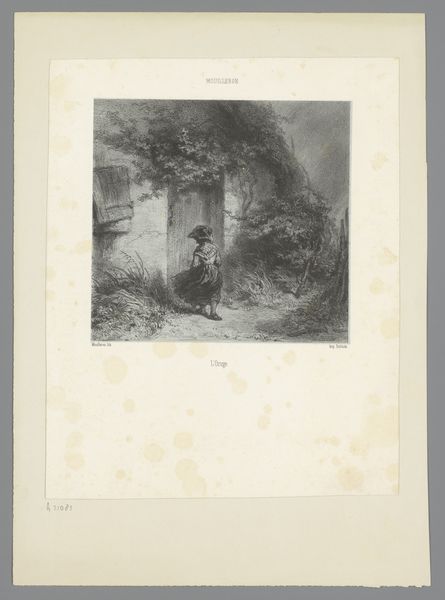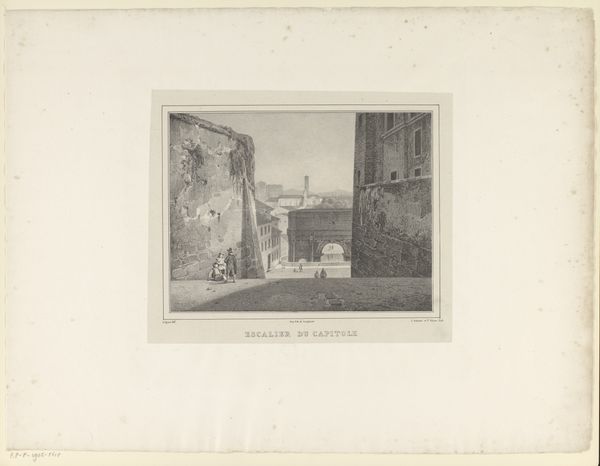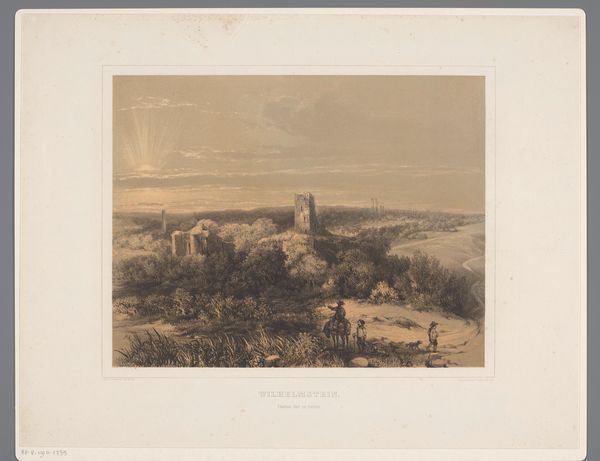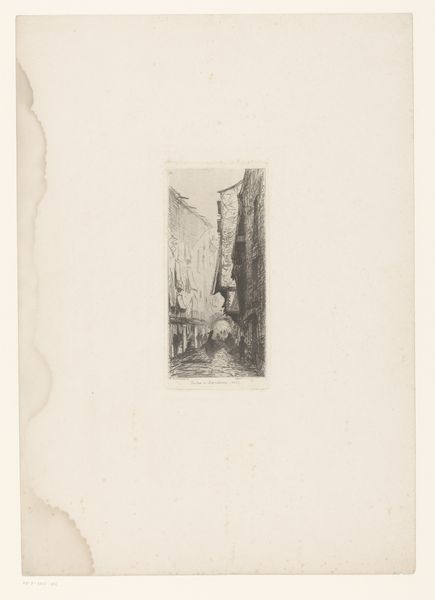
Dimensions: height 593 mm, width 441 mm
Copyright: Rijks Museum: Open Domain
Karl August Lindemann-Frommel produced this lithograph, ‘Two Figures in Florence by Moonlight,’ sometime in the mid-19th century. It invites us to consider not just the aesthetic appeal of Florence, but its role as a cultural touchstone for the European imagination. This image creates meaning through visual codes that would have been familiar to Lindemann-Frommel’s contemporaries. Florence, with its recognizable Duomo, was a symbol of Renaissance humanism, artistic achievement, and classical revival. Picturesque fountains and carefully placed statues completed the urban landscape, subtly reminding viewers of the city’s artistic legacy. Germany in the mid-1800s was a fragmented collection of states, and German intellectuals often looked to Italy for cultural inspiration. Artists like Lindemann-Frommel played a key role in shaping this vision of Italy. Art historians use a range of sources – travel guides, exhibition reviews, and artists’ biographies – to understand this image better. By looking at the image in its social and institutional context, we recognize how art reflects and shapes cultural values.
Comments
No comments
Be the first to comment and join the conversation on the ultimate creative platform.
